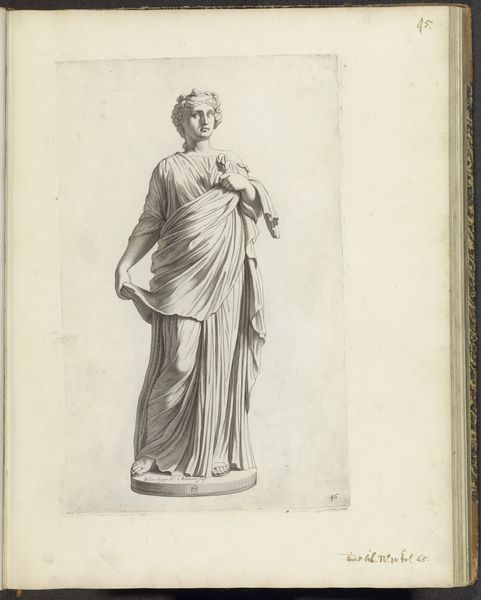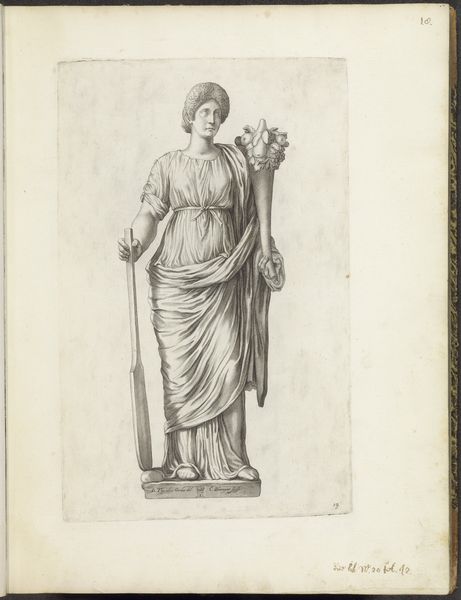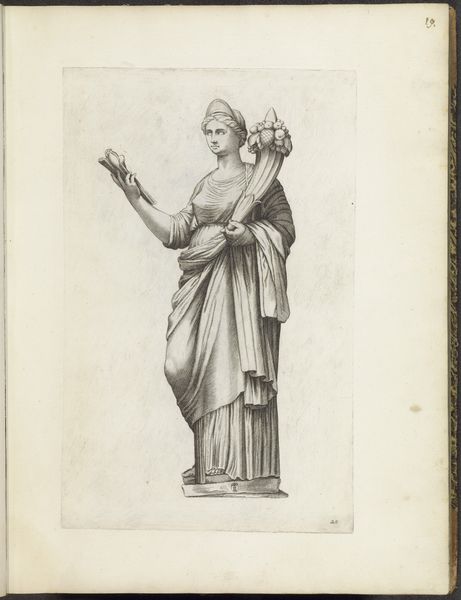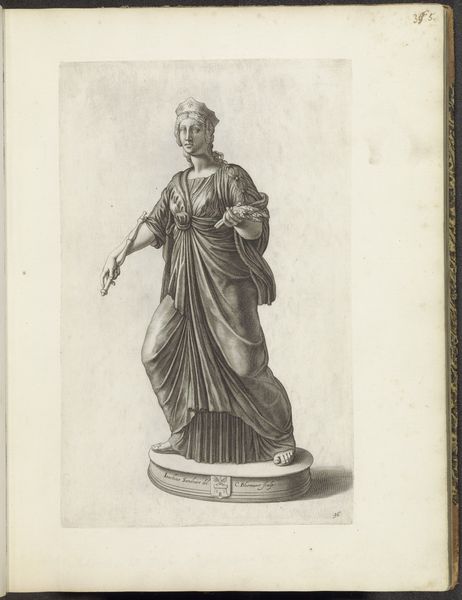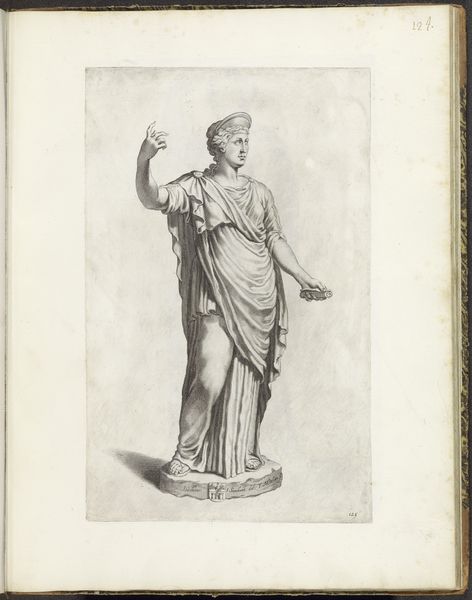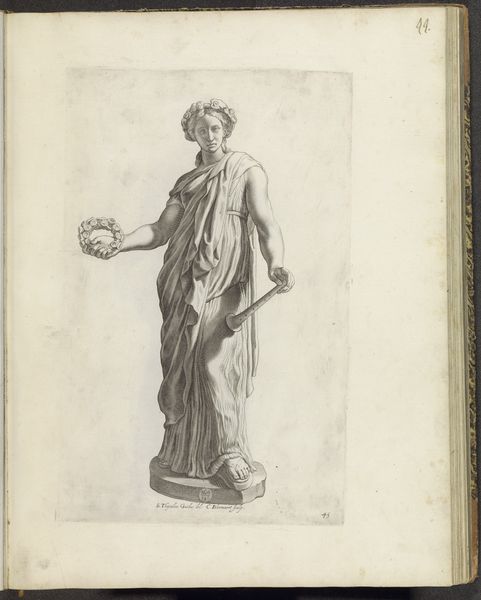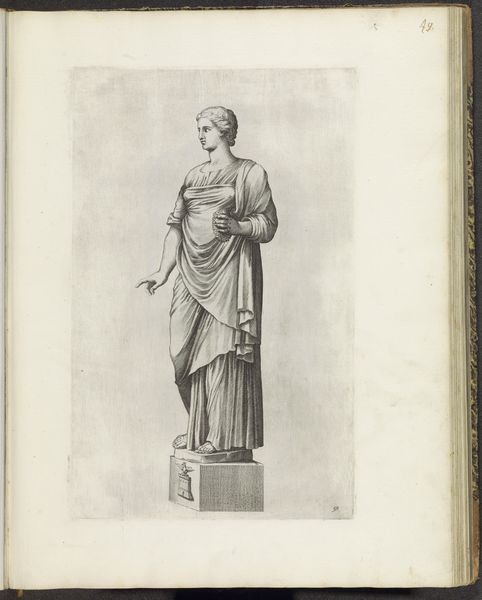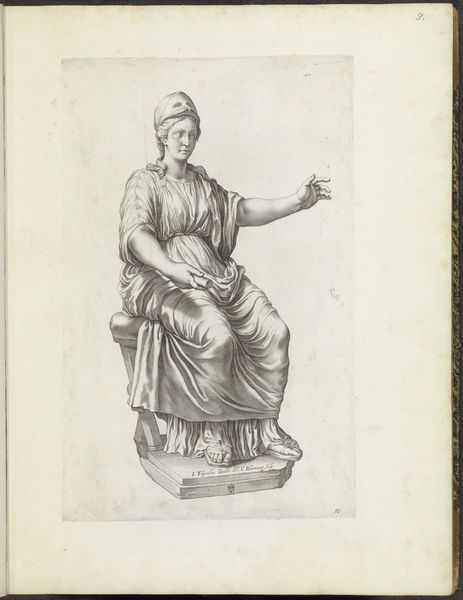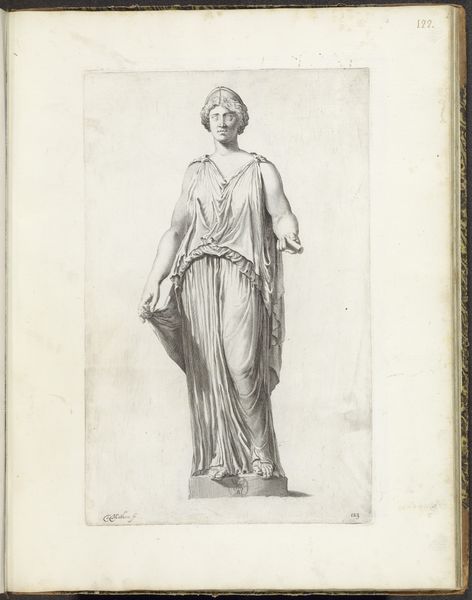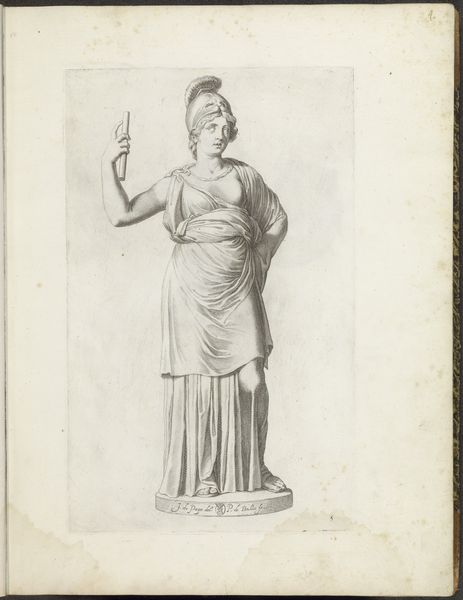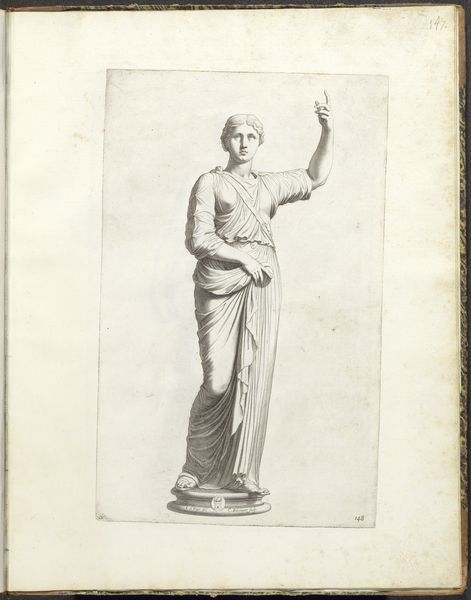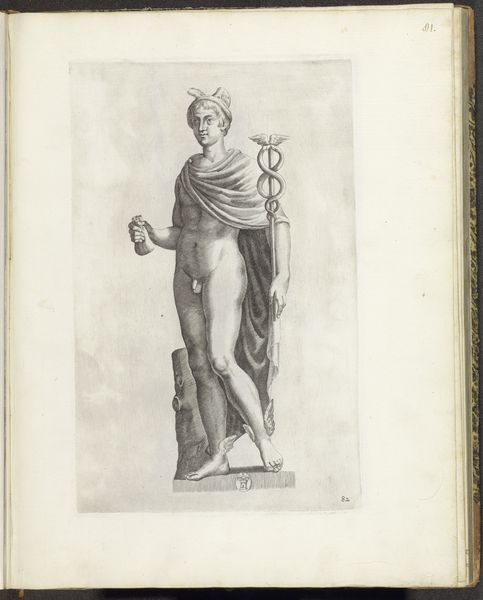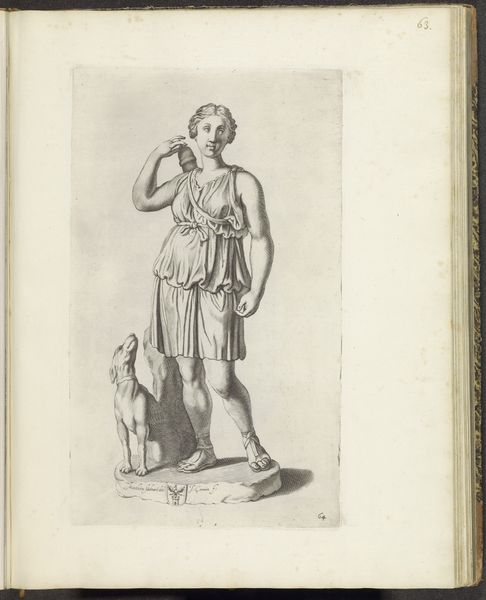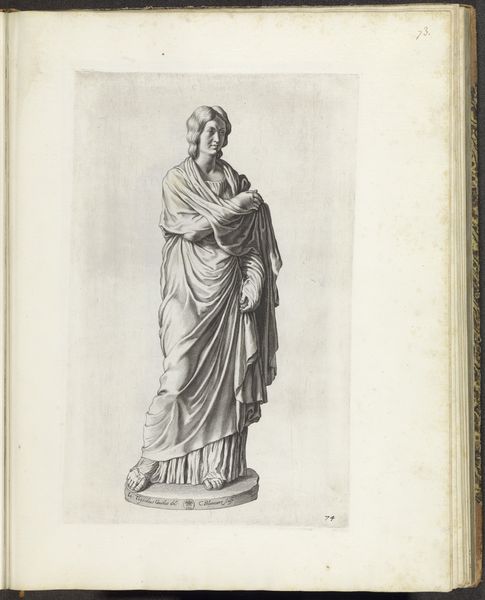
drawing, paper, ink
#
portrait
#
drawing
#
toned paper
#
light pencil work
#
baroque
#
pen sketch
#
pencil sketch
#
old engraving style
#
classical-realism
#
figuration
#
paper
#
form
#
personal sketchbook
#
ink
#
ink drawing experimentation
#
pen-ink sketch
#
line
#
sketchbook drawing
#
history-painting
#
academic-art
#
sketchbook art
#
realism
Dimensions: height 373 mm, width 236 mm
Copyright: Rijks Museum: Open Domain
Editor: This drawing, "Standbeeld van Ceres," by Cornelis Bloemaert, dates from 1636 to 1647. It's ink on paper, depicting a statue of Ceres. The precision of the line work, especially on the drapery, is striking. How would you interpret this work within its historical context? Curator: It's important to consider where and when Bloemaert was working. He was active during a period of significant interest in classical antiquity. Statues of figures like Ceres, the Roman goddess of agriculture, were not just aesthetic objects but symbols of power, prosperity, and cultural heritage. These images reflected the ambitions and values of the elite who commissioned or collected them. Editor: So it's not just a drawing of a statue, but a statement of something more? Curator: Precisely! Ask yourself: who was the audience for drawings like these? Consider that Bloemaert's workshop produced prints based on these drawings and consider the effect these may have on larger audiences outside of the Elite collectors. This circulation influenced artistic taste and promoted certain values – values about ideal beauty, order, and a connection to a glorified past. The 'revival' of classical art coincided with the rise of centralized states and the need for visual language that conveyed authority and stability. How does the composition itself contribute to this effect? Editor: The figure's serene expression and idealized form certainly project a sense of authority and timelessness, something almost propaganda-like? Curator: Yes! It prompts reflection on the social functions of art. Images can reinforce or challenge established norms, and the ‘Standbeeld van Ceres’ participates in a dialogue about power, culture, and the role of the artist in shaping public perceptions. Editor: That makes me look at it quite differently. Thank you.
Comments
No comments
Be the first to comment and join the conversation on the ultimate creative platform.
